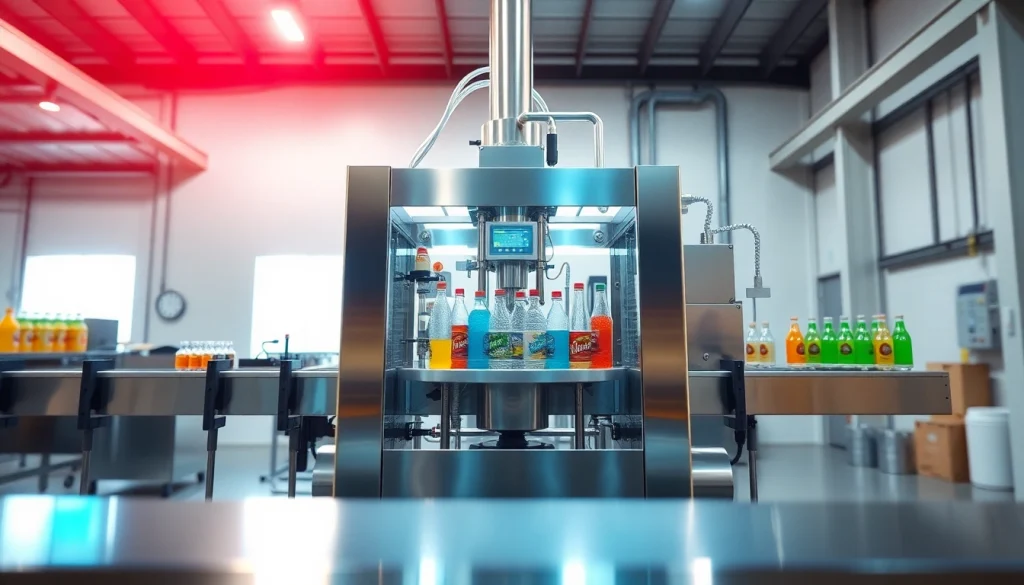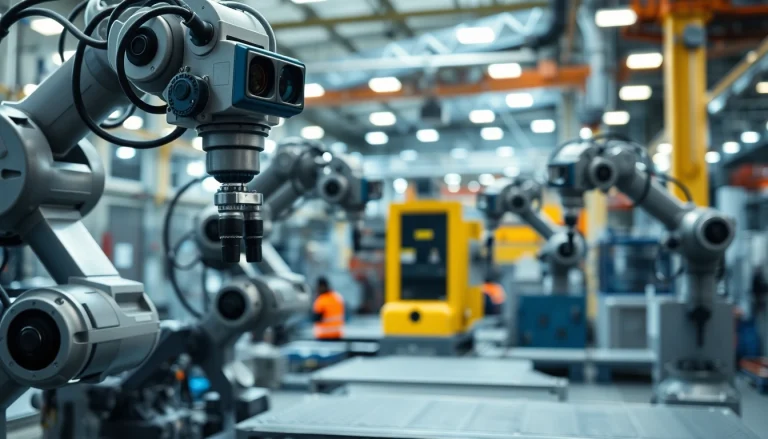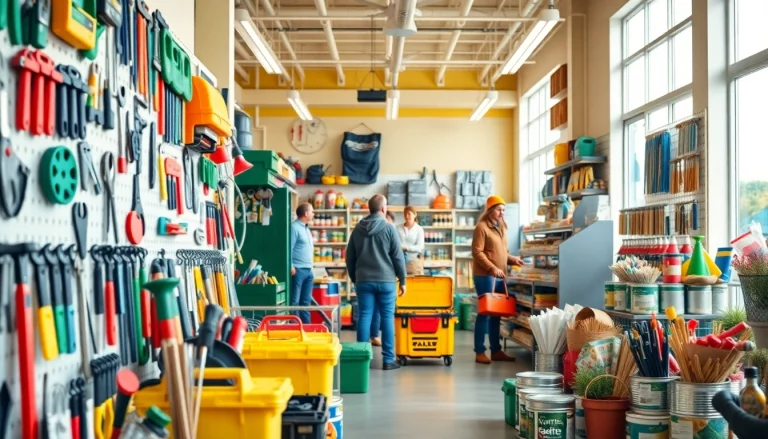
Understanding Liquid Packaging Machines
The packaging of liquids ranges across different industries from food and beverages to pharmaceuticals. As businesses seek to maximize efficiency and ensure product integrity, the choice of packaging machinery becomes crucial. A Liquid Packaging Machine Supplier can help businesses streamline this process, offering equipment that enhances productivity while ensuring compliance with safety standards.
What is Liquid Packaging?
Liquid packaging is the process of encapsulating liquid products in a way that protects them from external contamination, retains quality, and makes them suitable for storage, transport, and sale. This process involves various materials such as plastic, glass, metal, and cardboard to create containers ranging from bottles and pouches to cans and cartons. The selection of packaging plays a pivotal role in the product’s shelf life and consumer experience.
Types of Liquid Packaging Machines
Liquid packaging machines come in diverse types, each designed for specific tasks and product types. Understanding the various types can help businesses select the right equipment tailored to their needs:
- Filling Machines: Used for dispensing liquids into containers. They can be categorized into manual, semi-automatic, and fully automatic machines, depending on the level of automation required.
- Capping Machines: These machines place caps on bottled liquids, ensuring they are sealed securely. They are critical in maintaining product safety and integrity during transport.
- Labeling Machines: Essential for branding and compliance, labeling machines apply labels to containers. Advanced models include barcode and QR code applications for tracking and marketing.
- Pouch Filling Machines: Ideal for liquid products in pouch form, these machines fill and seal pre-formed pouches efficiently and are commonly used in food sectors.
- Cartoning Machines: These machines package multiple containers into a cardboard box or carton, streamlining the shipping process.
Key Features to Consider
When selecting a liquid packaging machine, consider the following features:
- Speed and Efficiency: The machine’s throughput is critical in meeting production demands. Higher speed usually correlates with better productivity.
- Flexibility: Machines that can handle different container sizes and shapes provide greater versatility, accommodating various products.
- Ease of Operation: User-friendly interfaces minimize training time and errors, enhancing operational efficiency.
- Material Compatibility: Ensure the machine materials are compatible with the liquid being packaged, especially in industries like pharmaceuticals and food.
- Maintenance Requirements: Select machines that offer easy access for maintenance to minimize downtime and operational disruptions.
Choosing the Right Liquid Packaging Machine Supplier
Finding the right supplier is just as critical as choosing the machine itself. An ideal supplier should align with your business requirements and provide support throughout the lifecycle of the product.
Factors to Evaluate When Selecting a Supplier
Several factors should guide your evaluation of potential suppliers:
- Experience and Expertise: Suppliers with a long history in the industry likely have the knowledge and skills necessary to provide reliable equipment and support.
- Product Quality: Investigate the quality of the products offered, looking for certifications or customer testimonials that validate the machine’s performance.
- Customer Support: Good after-sales support can significantly reduce downtime during operational challenges. Consider suppliers who provide robust support options.
- Customization Options: If your product requires unique packaging solutions, a supplier who offers customization will enable you to tailor equipment to your specifications.
- Price and Value: Evaluate whether the pricing aligns with your budget considerations. Remember to assess the total cost of ownership, not just the upfront cost.
Importance of Supplier Reputation
The reputation of a liquid packaging machine supplier can hold significant weight in your decision-making process. Suppliers known for high-quality products and fantastic customer service will often rank higher among key industry players. Conduct thorough research and seek feedback from current and past clients to gain insights into a supplier’s reliability and service performance.
How to Request Quotes and Proposals
After narrowing down potential suppliers, the next step is to request quotes and proposals. Here’s how to maximize this process:
- Clearly Define Your Needs: Provide detailed specifications for the machinery you require, including product types, volume, and packaging formats.
- Comparative Analysis: Request quotes from multiple suppliers to compare features and prices. Ensure that each supplier is providing similar machine specifications for a direct comparison.
- Inquire About Lead Times: Understand the lead times for manufacturing and delivery, as this can impact your production schedule significantly.
- Ask About Demonstrations: Some suppliers may offer trial periods or demonstrations, which can be beneficial in assessing the machine’s performance in real-time.
Applications of Liquid Packaging Machines
Liquid packaging machines are widely used across various industries. Their adaptability and efficiency make them essential in today’s market.
Food and Beverage Industry
In the food and beverage sector, liquid packaging machines handle everything from sauces and juices to dairy products. For instance, pouch filling machines are commonly used for soups and juices, ensuring high hygiene standards that are critical in food safety regulations. These machines help businesses meet stringent shelf-life requirements while maintaining product quality.
Pharmaceutical Sector
The pharmaceutical industry relies heavily on liquid packaging machines to ensure that medications are perfectly dosed and sealed. Machines used in this sector must adhere to strict regulatory standards imposed by health authorities. Advanced technologies such as aseptic filling are crucial in this industry, providing sterile packaging solutions that extend the shelf life of liquid medicines.
Chemical Packaging Solutions
Liquid packaging machinery is also essential for the chemical industry, where products such as inks, paints, and cleaning agents need to be packaged safely to prevent leaks and promote safety in handling. The proper machinery reduces the risk of contamination while enabling faster production cycles and increased throughput.
Benefits of Investing in Quality Packaging Solutions
Investing in high-quality liquid packaging machines offers numerous benefits that can contribute to a company’s success.
Cost Efficiency and Reduced Waste
Quality packaging solutions help businesses minimize waste through precise filling processes that reduce spillage and overfilling. Moreover, efficient operations can significantly lower operational costs, allowing businesses to allocate resources more effectively. Implementing technology that automates processes may also lead to fewer labor costs in the long run.
Enhancing Product Shelf Life
Effective liquid packaging helps in preserving product integrity against external factors. By using machines that create optimal sealing and protection, companies can extend the shelf life of their products, reduce spoilage, and improve ROI. For example, vacuum-sealing techniques are frequently used for products prone to oxidation, thereby enhancing their longevity.
Boosting Consumer Trust with Reliable Packaging
Well-packaged products convey quality and reliability, helping to build consumer trust. Machines that ensure the highest safety and hygiene standards reflect positively on brand reputation. In a competitive marketplace, providing excellent quality packaging can differentiate a brand and promote customer loyalty.
Future Trends in Liquid Packaging Technology
As technology progresses rapidly, liquid packaging machinery is evolving, offering exciting possibilities for various industries. Here are some trends shaping the future:
Integration of Smart Technology
The advent of smart technology in packaging machinery allows for real-time monitoring and adjustments during production. These innovations enable predictive maintenance and help in streamlining processes, enhancing operational efficiency. Sensors and IoT capabilities allow for tracking and optimizing production parameters remotely, leading to informed decision-making.
Sustainability in Packaging Solutions
The focus on sustainability is reshaping the packaging industry as businesses challenge themselves to employ environmentally friendly practices. This includes sourcing biodegradable materials and minimizing energy consumption during the production process. Suppliers that prioritize sustainable practices not only contribute positively to the environment but also appeal to eco-conscious consumers.
The Rise of Customizable Packaging Options
Customization is increasingly becoming a priority in liquid packaging. From unique container shapes to tailor-made filling techniques, businesses are seeking to differentiate their products effectively on the shelf. Flexible machinery capable of rapid changeovers aids companies in adapting to shifting consumer preferences without significant downtime.






